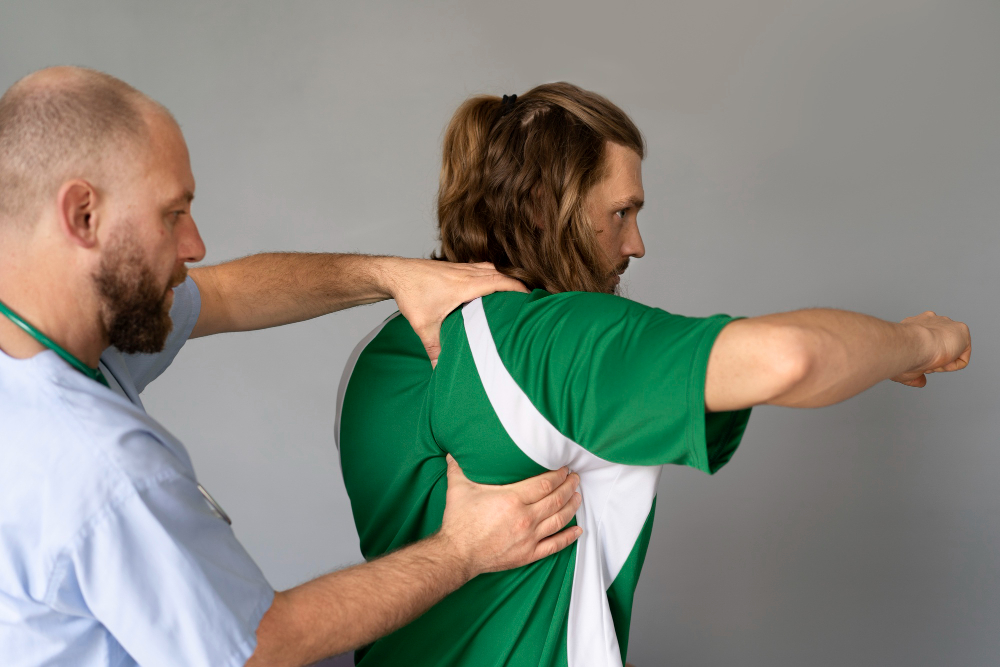The Ultimate Guide to Shoulder Rehab: Tips from a Physical Therapist

Shoulder injuries can be incredibly debilitating, affecting everything from your ability to work to perform simple daily tasks. Proper rehabilitation is crucial for a full recovery and avoiding further damage. In this comprehensive guide, we’ll explore the shoulder rehab process, providing expert advice from a top physical therapist in Winter Springs, FL. Whether you're dealing with a minor strain or recovering from surgery, this guide will help you understand what to expect and how to achieve the best results.
Understanding Shoulder Injuries
The shoulder is a complex joint made up of bones, muscles, tendons, and ligaments. It allows for a wide range of motion, making it susceptible to various injuries. Common shoulder injuries include:
- Rotator Cuff Tears: These involve damage to the group of muscles and tendons that stabilize the shoulder.
- Dislocations: Occur when the upper arm bone pops out of the shoulder socket.
- Frozen Shoulder (Adhesive Capsulitis): Characterized by stiffness and pain, limiting the shoulder's range of motion.
- Bursitis: Inflammation of the bursae, small fluid-filled sacs that cushion the shoulder joint.
- Tendinitis: Inflammation or irritation of the tendons, often caused by repetitive motion.
The Importance of Early Intervention
Early intervention is key to successful shoulder rehabilitation. Ignoring a shoulder injury can lead to chronic pain and long-term disability. If you're experiencing shoulder pain, don’t hesitate to seek help from a qualified physical therapist in Winter Springs, FL.
The Initial Assessment
When you first visit a physical therapist, they will conduct a thorough assessment to determine the extent of your injury. This typically involves:
- Medical History Review: Discussing any previous shoulder injuries and overall health.
- Physical Examination: Assessing range of motion, strength, and any visible signs of injury.
- Imaging Tests: In some cases, X-rays or MRI scans may be recommended to get a clearer picture of the injury.
Developing a Personalized Rehab Plan
Based on the initial assessment, your physical therapist will develop a personalized rehab plan tailored to your specific needs. This plan will likely include:
- Pain Management: Techniques to manage pain and inflammation, such as ice packs, heat therapy, or medication.
- Range of Motion Exercises: Gentle stretching exercises to improve flexibility and restore normal movement.
- Strengthening Exercises: Targeted exercises to strengthen the muscles surrounding the shoulder, enhancing stability and support.
- Functional Training: Activities designed to restore normal function and improve overall shoulder mechanics.
The Rehab Process: What to Expect
Phase 1: Pain and Inflammation Control
The first phase of shoulder rehab focuses on controlling pain and reducing inflammation. Your physical therapist may recommend:
- Ice and Heat Therapy: Applying ice packs to reduce swelling and using heat to relax tight muscles.
- Medications: Over-the-counter pain relievers or anti-inflammatory drugs.
- Rest and Activity Modification: Avoiding activities that aggravate your injury while staying as active as possible within your pain-free range.
Phase 2: Restoring Range of Motion
Once pain and inflammation are under control, the next step is to restore your shoulder's range of motion. This involves:
- Passive Stretching: Your physical therapist gently moves your arm to stretch the shoulder muscles and ligaments.
- Active-Assisted Exercises: Using your unaffected arm or a tool like a pulley to help move the injured shoulder.
- Active Range of Motion Exercises: Moving your shoulder through its full range of motion without assistance.
Phase 3: Strengthening and Stabilization
Strengthening the shoulder muscles is crucial for preventing future injuries. Your rehab plan may include:
- Isometric Exercises: Contracting your muscles without moving the joint to build strength without strain.
- Resistance Training: Using bands, weights, or body weight to strengthen the shoulder muscles.
- Functional Exercises: Activities that mimic everyday movements to improve shoulder stability and function.
Phase 4: Functional Training and Return to Activity
The final phase of shoulder rehab focuses on returning to normal activities and preventing re-injury. This involves:
- Advanced Strengthening Exercises: Increasing the intensity and complexity of your exercises to match your activity level.
- Sport-Specific Training: If you're an athlete, your physical therapist will incorporate exercises that mimic the demands of your sport.
- Ergonomic Training: Learning proper body mechanics and posture to avoid future injuries.
The Role of a Physical Therapist in Shoulder Rehab
A physical therapist plays a crucial role in guiding you through the shoulder rehab process. They provide:
- Expert Guidance: Personalized advice and support tailored to your specific injury and goals.
- Progress Monitoring: Regular assessments to track your progress and adjust your rehab plan as needed.
- Motivation and Encouragement: Helping you stay motivated and committed to your rehab plan.
Why Choose B Physical Therapy in Winter Springs, FL
If you're looking for a trusted physical therapist in Winter Springs, FL, consider B Physical Therapy. We offer:
- Experienced Professionals: Our team of experienced physical therapists specializes in shoulder rehab and is dedicated to helping you achieve a full recovery.
- Comprehensive Care: We provide personalized rehab plans, combining the latest techniques with compassionate care.
- State-of-the-Art Facility: Our modern facility is equipped with advanced equipment to support your rehab journey.
Conclusion
Shoulder rehab is a critical process that requires expert guidance and personalized care. By understanding the different phases of rehab and working with a qualified physical therapist, you can achieve a full recovery and return to your normal activities. If you're in Winter Springs, FL, and looking for top-notch shoulder rehab services, contact B Physical Therapy today to schedule an appointment. Don't let shoulder pain hold you back—take the first step toward recovery today.
Call to Action
Ready to start your shoulder rehab journey? If you're looking for a Physical therapist in Winter Springs, FL, contact B Physical Therapy today to schedule your appointment. Our team of experienced physical therapists is here to help you achieve a full recovery and get back to doing what you love. Don't wait—reach out now and take the first step toward a pain-free life.